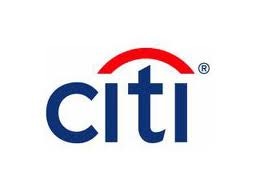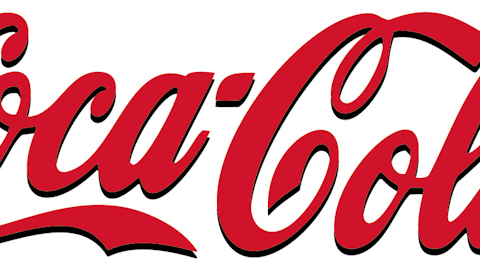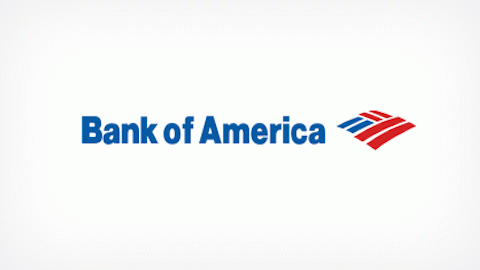A company that isn’t growing — that isn’t expanding its reach and increasing its revenue and profit — probably isn’t a company that makes for a good investment. Though we may not typically think of them in this way, banks are no different: Publicly traded banks are under the same shareholder pressure for growth as any other company.
Today we’re going to apply this investment thesis to Citigroup Inc. (NYSE:C) to see how the country’s third-biggest bank can get even bigger than it already is, and make it a better investment than it already is.
The secret sauce that’s no secret
Last week, we talked about Citi’s secret sauce: the competitive edge that makes it stand apart from its peers. That secret sauce is its overseas operations, from which it made 53.1% of its revenue in the first quarter. In a global economy that doesn’t look like it’s going to de-globalize anytime soon, Citigroup Inc. (NYSE:C)’s secret sauce tells us where Citi’s best chance for continued growth is. How does Citi stack up against the competition overseas?
First a word from Wells Fargo & Co (NYSE:WFC) CEO John Stumpf, taken from a June 2 Financial Times article discussing where the country’s fourth-largest bank is looking for its growth: “We are largely a domestic bank, and we like it that way.” Stumpf went on to say that “the 3% of revenue made overseas is probably not going to change a lot.”
So that’s at least one big bank not competing with Citigroup Inc. (NYSE:C) for overseas business. What about Bank of America Corp (NYSE:BAC) and JPMorgan Chase & Co. (NYSE:JPM)?
It’s challenging to try to make apples-to-apples comparisons when it comes to what the big banks are up to overseas: parsing out precisely where and how they generate their revenue and profit. This is because different companies have different ways of structuring their businesses, and different ways of reporting their numbers. But here’s what we can see for B of A and what it calls “Global Banking,” and JPMorgan and what it calls “Corporate & Investment Banking”:
–For Q1 2013, B of A reported total revenue of $4.2 billion in its Global Banking unit. That’s 18.1% of total Q1 revenue.
–For the same time period, JPMorgan reported total revenue of $10.1 billion from Corporate & Investment Banking, of which $4.9 billion came from overseas operations; this means overseas operations accounted for 19% of total revenue.
Foolish bottom line
Again, these numbers are not directly comparable, but they offer a rough-but-fair picture of where Citigroup Inc. (NYSE:C)p stands in relation to its counterparts when it comes to overseas operations. So what do these numbers say?
Citi takes in more of its total revenue from overseas operations than either B of A or JPMorgan, though the race with B of A is a much closer one. And Wells Fargo won’t even come to the starting block. If nothing else, these numbers show that Citigroup Inc. (NYSE:C) is as committed, if not more, than its peers to pushing beyond the limits of the United States in the search for growth and income.
And where else is continued growth for the big banks going to come from? The U.S. is a finite, mature market for many industries. It’s like the battle between The Coca-Cola Company (NYSE:KO) and PepsiCo, Inc. (NYSE:PEP) for American consumers: in terms of market share, the two companies may trade a few percentage points back and forth from year to year, but room for true growth is limited. Hence, the real battles for these two cola giants are overseas, in developing markets. The same goes for banks.
And what I think gives Citigroup Inc. (NYSE:C) the real edge here is the superbank’s CEO, Michael Corbat. Corbat did a stint as chief executive of Citi’s operations in Europe, Africa, and the Middle East. Who better to lead the global American bank but a globally aware and trained Citi lifer? Citi is perfectly positioned for revenue and income growth exactly where it needs to be: overseas. Wells Fargo, take note.
The article Where Will Citigroup’s Growth Come From? originally appeared on Fool.com.
Fool contributor John Grgurich owns shares of Citigroup and JPMorgan Chase. Follow John’s dispatches from the bleeding heart of capitalism on Twitter @TMFGrgurich. The Motley Fool recommends Bank of America, Coca-Cola, PepsiCo, and Wells Fargo. The Motley Fool owns shares of Bank of America, Citigroup, JPMorgan Chase, PepsiCo, and Wells Fargo.
Copyright © 1995 – 2013 The Motley Fool, LLC. All rights reserved. The Motley Fool has a disclosure policy.





